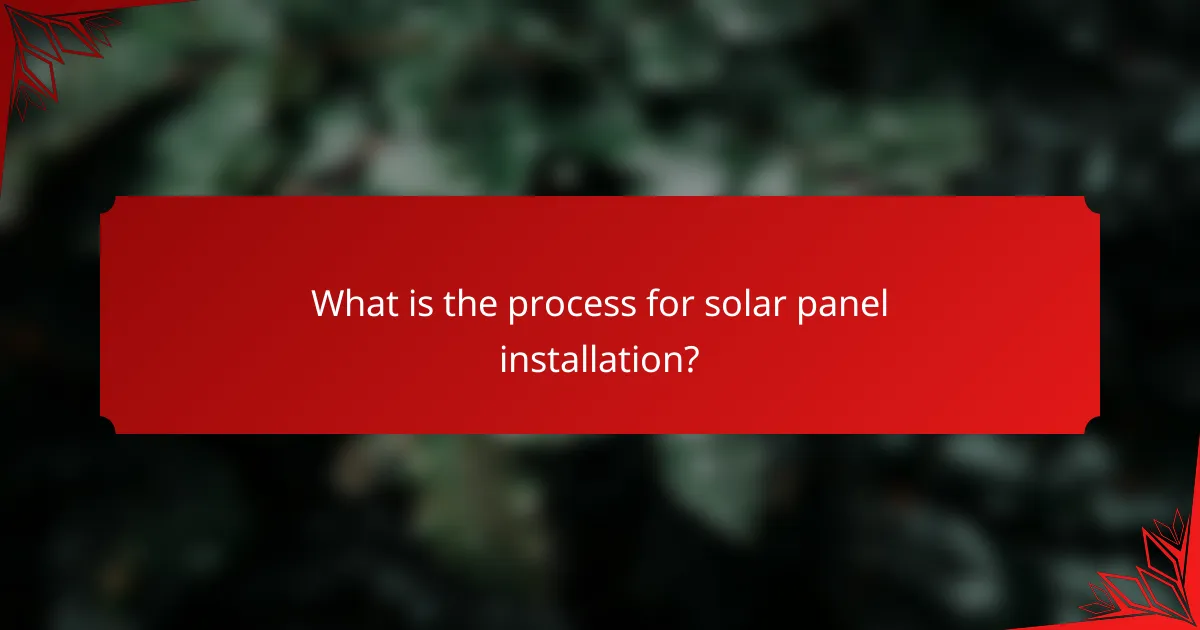Navigating local regulations is essential for successful renewable energy consulting, particularly in the realm of solar panel installations. These regulations can vary widely by state, influencing compliance and the potential benefits of renewable energy projects. A knowledgeable consultant can help you understand these complexities, ensuring that your solar installation maximizes both financial and environmental advantages.

What are the local regulations for renewable energy consulting?
Local regulations for renewable energy consulting vary significantly by state, impacting how solar panel installations are managed and incentivized. Understanding these regulations is crucial for compliance and maximizing benefits from renewable energy projects.
California renewable energy policies
California has some of the most progressive renewable energy policies in the United States. The state mandates that all new homes include solar panels, and it aims for 100% clean energy by 2045. Consulting firms must navigate various incentives, such as the California Solar Initiative, which offers rebates for solar installations.
Additionally, California’s net metering policy allows homeowners to receive credits for excess energy produced, making it essential for consultants to understand how to optimize installations for this benefit.
New York solar energy regulations
New York has implemented several regulations to promote solar energy, including the NY-Sun initiative, which provides financial incentives for solar installations. Consultants should be aware of the state’s goal to generate 70% of its electricity from renewable sources by 2030.
Moreover, New York’s net metering rules allow for credits on energy produced, similar to California, but with specific caps based on system size. Understanding these limits is vital for effective consulting.
Texas renewable energy incentives
Texas offers a variety of incentives for renewable energy, including property tax exemptions for solar installations. The state has no state income tax, which can be advantageous for solar investors. Consultants should also be aware of the Renewable Energy Credit (REC) program, which allows for the trading of credits generated from renewable energy production.
However, Texas lacks a statewide renewable portfolio standard, meaning that local regulations can vary widely. Consultants need to research specific city or county regulations to ensure compliance.
Florida solar installation laws
Florida’s solar installation laws include the Solar Energy System Incentives Program, which provides rebates for residential solar systems. The state has a strong focus on solar energy, but regulations can differ by county, so local knowledge is essential for consultants.
Additionally, Florida allows net metering, enabling homeowners to receive credits for surplus energy. Consultants should help clients understand how to maximize these benefits while adhering to local codes and permitting processes.

How to choose a renewable energy consultant?
Choosing a renewable energy consultant involves evaluating their expertise, understanding local regulations, and assessing their track record. A qualified consultant can guide you through the complexities of solar panel installations and ensure compliance with relevant laws.
Experience with local regulations
When selecting a renewable energy consultant, prioritize their experience with local regulations. Each region has specific laws governing solar installations, including permitting processes and incentives. A consultant familiar with these regulations can streamline your project and help you avoid costly delays.
For instance, in the United States, regulations can vary significantly from state to state, impacting everything from tax credits to installation standards. Ensure your consultant has a strong grasp of the local landscape to navigate these complexities effectively.
Certifications and qualifications
Verify the certifications and qualifications of potential renewable energy consultants. Look for credentials from recognized organizations, such as the North American Board of Certified Energy Practitioners (NABCEP) for solar professionals. These certifications indicate a level of expertise and commitment to industry standards.
Additionally, consider their educational background and any ongoing training they may pursue. A consultant who stays updated on the latest technologies and regulations is more likely to provide valuable insights and innovative solutions for your project.
Client testimonials and case studies
Client testimonials and case studies offer insight into a consultant’s effectiveness and reliability. Look for reviews from previous clients that highlight their experience with the consultant’s services, particularly regarding solar panel installations. Positive feedback can indicate a consultant’s ability to deliver results.
Request case studies that demonstrate successful projects similar to yours. This will help you gauge their problem-solving skills and how they handle challenges during the installation process. A strong portfolio can be a deciding factor in your choice of consultant.

What are the benefits of solar panel installations?
Solar panel installations offer numerous advantages, including significant cost savings on energy bills, a reduction in environmental impact, and an increase in property value. These benefits make solar energy an attractive option for homeowners and businesses alike.
Cost savings on energy bills
One of the most immediate benefits of solar panel installations is the reduction in energy bills. By generating your own electricity, you can decrease your reliance on the grid, leading to lower monthly utility costs. In many cases, homeowners can save anywhere from 20% to 50% on their energy expenses.
Additionally, many regions offer incentives such as tax credits or rebates that can further reduce the initial investment in solar technology. It’s essential to research local regulations and available financial incentives to maximize savings.
Environmental impact reduction
Solar energy is a clean and renewable resource that significantly reduces greenhouse gas emissions compared to fossil fuels. By switching to solar power, households can contribute to a decrease in air pollution and the overall carbon footprint. This transition is crucial for combating climate change and promoting sustainability.
Moreover, solar panels require minimal water for operation, unlike traditional power plants, which can consume large amounts of water. This aspect makes solar installations a more environmentally friendly choice, especially in areas facing water scarcity.
Increased property value
Installing solar panels can enhance the value of your property. Studies indicate that homes equipped with solar energy systems often sell for a premium compared to similar homes without solar. This increase in property value can range from a few thousand to tens of thousands of dollars, depending on the local market and the size of the solar installation.
Potential buyers are increasingly looking for energy-efficient homes, making solar installations a desirable feature. However, it’s important to ensure that the installation complies with local regulations and standards to maximize property value and appeal.

What is the process for solar panel installation?
The process for solar panel installation involves several key steps, including site assessment, obtaining necessary permits, and the actual installation. Each step requires careful planning and adherence to local regulations to ensure a successful and compliant installation.
Site assessment and feasibility study
The site assessment is crucial for determining the suitability of a location for solar panel installation. This involves evaluating factors such as roof orientation, shading from nearby structures, and structural integrity. A feasibility study may also include an analysis of energy needs and potential savings.
During this phase, a professional will often conduct a solar potential analysis to estimate the expected energy production. This helps homeowners understand the potential return on investment and informs decisions on system size and type.
Permitting and approvals
Before installation can begin, obtaining the necessary permits and approvals is essential. This process varies by location, with some municipalities requiring specific documentation, while others may have streamlined procedures. Homeowners should check local regulations to ensure compliance.
Common permits include building permits and electrical permits, which may require submission of plans and specifications. Engaging with local authorities early in the process can help avoid delays and ensure all requirements are met.
Installation timeline and steps
The installation timeline can vary, but it typically takes a few days to a couple of weeks from start to finish. After permits are secured, the installation process generally involves several steps: site preparation, mounting system installation, panel installation, and electrical connections.
Homeowners should expect a team of professionals to handle the installation, ensuring that all components are securely mounted and connected according to safety standards. After installation, a final inspection may be required to confirm compliance with local codes before the system can be activated.

What financing options are available for solar installations?
Various financing options exist for solar installations, including loans, leases, and power purchase agreements (PPAs). Each option has its own benefits and considerations, allowing homeowners and businesses to choose what best fits their financial situation.
Federal tax credits
Federal tax credits are a significant incentive for solar installations, allowing homeowners to deduct a percentage of the installation costs from their federal taxes. Currently, the Investment Tax Credit (ITC) offers a deduction of around 30% for systems installed before the end of 2032.
To qualify for the federal tax credit, the solar system must be installed on your primary or secondary residence, and you must own the system outright. This means that leasing or PPA arrangements typically do not qualify for the credit.
When planning your solar installation, consider the timing of your purchase to maximize the tax benefits. If you anticipate a higher tax liability in the year of installation, it may be advantageous to install your system sooner rather than later to take full advantage of the credit.



